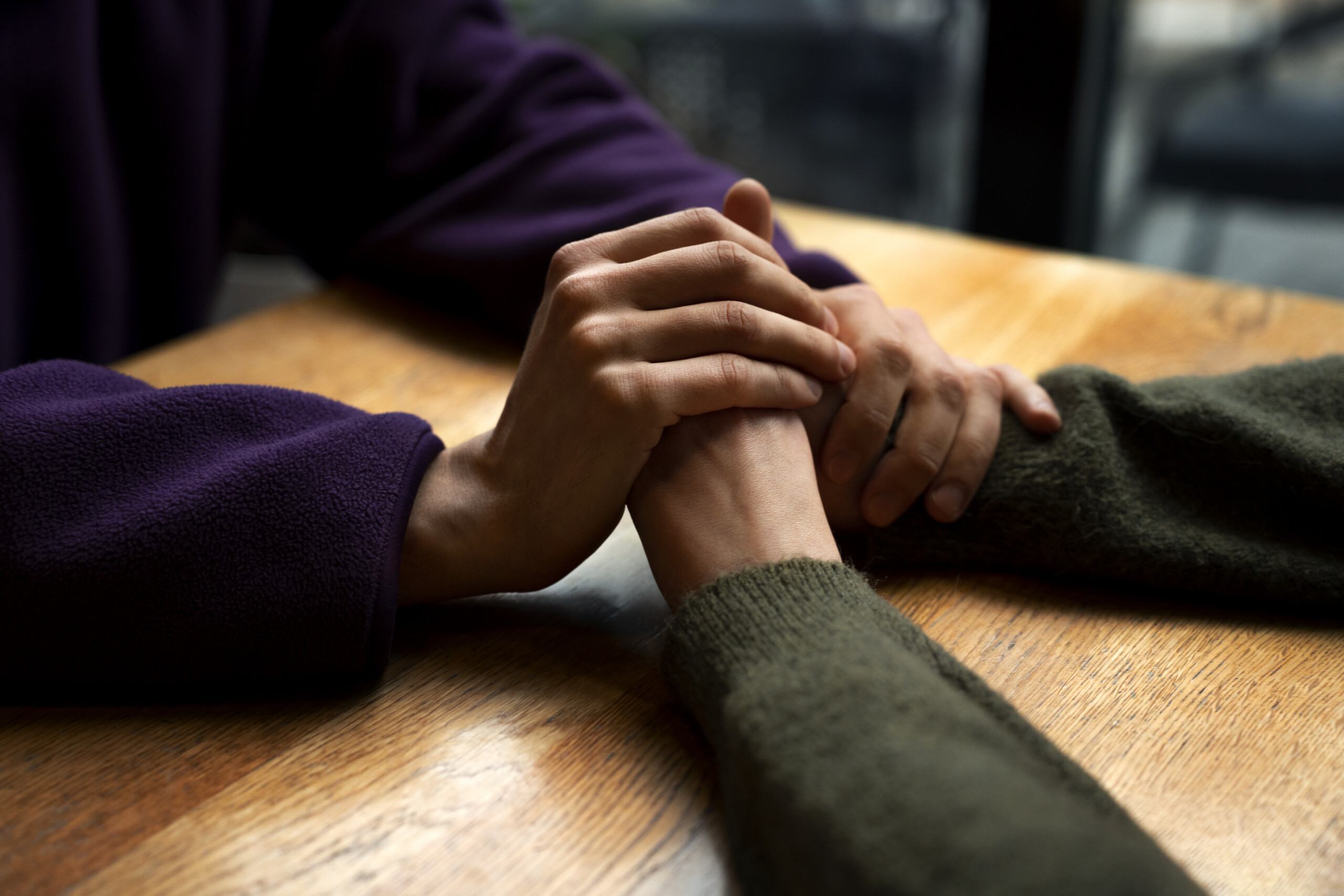“You’d Be So Pretty If…”: The Spiritual Toll of Conditional Love

The other day, in the spirituality group I lead for adolescents in inpatient psychiatry, we talked about the invisible weight we carry when other people’s expectations and judgments strike at our very core. It didn’t take long for the familiar phrases to emerge:
“You’d be so pretty if you smiled more.”
“You’re too much.”
“You’re not enough.”
What began as a gentle conversation turned into a chorus of recognition. To the teens in the room, these weren’t abstract statements; they were stories etched into skin, into memory, into the shaping of the self.
Then one of the teens, quiet until that moment, offered something that stopped us all.
“You know, I remember when I was little, everyone told me I was perfect… so pretty and smart and creative and wonderful. But the moment I started to show who I really am, I realized they didn’t love me. They loved who they thought they could turn me into. After that, I was never enough again. And all I’ve heard for the past few years is everything they think is wrong with me.”
The room went still. And then, slowly, every head nodded. No one needed to explain further.
That moment has stayed with me. Not because it was unique, but because it was heartbreakingly common. Many of us, not just those in inpatient care, are trying to outlive the message that our authentic selves are somehow defective. That message doesn’t usually arrive all at once. It comes through smiles that disappear when we step outside the mold, through praise that evaporates when we ask questions, through love that seems to hinge on conformity.
It doesn’t always come from cruelty. In fact, it often comes from people who believe they are doing the right thing. It comes from family members, teachers, coaches, and pastors. It can come in the name of love, of faith, of discipline. But underneath it all, children often hear: “Who you are is not okay. Be someone else.”
We have all made mistakes. We all fall short in relationships. But this isn’t about momentary failings. This is about deep and ongoing spiritual wounds inflicted not by what we do, but by who we are allowed, or not allowed, to be. These wounds often manifest long before anyone sees them. They surface in school refusal, self-harm, disordered eating, anxiety, dissociation, defiance, and depression. We may treat these as problems to solve, but they are often symptoms of a more profound rupture: the spiritual fracture of not being received as beloved in our fullness.
As a pediatric chaplain, I see the consequences every day. These wounds don’t just hurt emotionally. They shape how young people show up in healthcare. There is well-documented research showing how rejection, stigma, and conditional acceptance affect outcomes across mental and physical health domains. But even beyond the data, the spiritual impact is profound. When children begin to believe that their worth is transactional, they often lose the inner compass that says, “I matter.” And once that compass is gone, it’s not just their behavior that suffers. It’s their hope. Their faith in relationship. Their sense of the Holy.
I don’t have answers for how to fix society. I know how complex systems are, including how policy, culture, and trauma intersect. But I also know that as people of faith, we’ve made promises. At each baptism, many of us vow to surround one another with a community of love and forgiveness, to pray for one another, and to teach each other to follow the way of love.
Those aren’t symbolic promises. They are spiritual commitments to show up in real and grounded ways for one another, especially for children and teens.
In my experience, children need containment more than correction. Not rigid rules but sacred structure. Not punishment but a commitment to stay close even when things are hard. These are boundaries rooted in relationship. That’s what nurture really is. It’s not permissiveness or passivity. It’s the brave act of seeing a young person clearly, even when their truth challenges us, and choosing to love them anyway.
Many teens in my care are trying to build a sense of self in the aftermath of disillusionment. They are grieving the loss of the idealized love they were promised as children. They are asking, “If they only loved me when I was their perfect little baby, will anyone love the real me?” That question is not just psychological; it is theological.
When I say that the wounds of conditional love are spiritual, I mean that they affect how a person understands presence, belonging, and what it means to be known. These are God-questions. These are soul-questions. These are wounds that no medication alone can reach.
In our tradition, we speak of belovedness. But belovedness is not just a theological idea, it’s something that must be mirrored back to us through community. Otherwise, it remains just a word. To saym, “you are beloved” must also mean “you are safe here,” “you are known here,” “you are not too much,” “you are not too broken,” “you don’t have to earn this.”
Imagine how different our communities could be if we consistently lived that kind of love. Imagine if every time a child or teen tested the edges of who they were, the response was not silence or shame but curiosity, connection, and care. Imagine if we held space not just for obedience, but for becoming.
I’m not naïve. I know how complicated families and institutions can be. I understand how fear, fatigue, and intergenerational trauma get in the way. But I believe we can do better. Not perfectly, but faithfully. Because even if we can’t change the whole system, we can still choose to see the people in front of us. We can still speak words that heal instead of harm. With our voice and presence, we can still tell a child: “You are not a project. You are not a problem to fix. You are not the sum of what others couldn’t accept. You are whole, and we are still here.” That is the beginning of repair. That is the heart of nurture. And maybe, just maybe, that is how we begin to outlive the damage and build a different kind of future: one where belovedness is not a prize for the compliant, but a birthright for all.
—
Rev. Lavender Kelley is a pediatric chaplain serving at Children’s National Hospital in Washington, D.C., with a focus on supporting children and families through compassionate, relational care.











